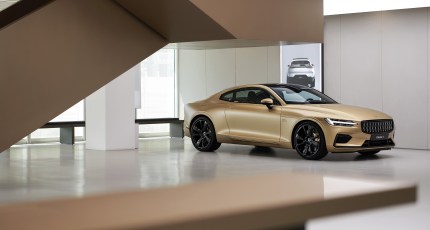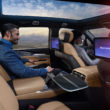Customized for China: Polestar and Xingji Meizu’s Breakthrough in EV Operating Systems. In the rapidly evolving landscape of electric vehicles (EVs), the collaboration between Swedish automaker Polestar and Chinese consumer electronics company Xingji Meizu has sent shockwaves through the industry. With a shared vision to revolutionize the Chinese EV market, these two powerhouses have joined forces to create a groundbreaking operating system (OS) tailored specifically for Polestar cars sold in China. This remarkable partnership marks a significant milestone in the quest for localized innovation and sets a new standard for EV operating systems in the Chinese market. Join us as we embark on a journey to explore how Polestar and Xingji Meizu’s breakthrough in EV operating systems is reshaping the driving experience in China and beyond.
A Shift in Strategies: Adapting to the Chinese Market
Polestar’s decision to team up with Xingji Meizu signifies the strategic importance of China in the global EV landscape. While Polestar has integrated Google’s Android Automotive OS into its vehicles worldwide, the restricted use of Google services in China necessitated a new approach. Xingji Meizu, led by Eric (Shufu) Li, founder and chairman of Chinese automotive giant Geely, has long aspired to challenge Android’s dominance in the Chinese market. This collaboration allows both companies to leverage their complementary expertise and create a localized user experience tailored to Chinese consumers’ expectations.
Integrating Flyme Auto OS: A Seamless Fusion of Technologies
The integration of Xingji Meizu’s Flyme Auto OS into Polestar cars sold in China ushers in a new era of technology and innovation. Beyond powering the infotainment systems, this OS will incorporate in-car apps, streaming services, and intelligent vehicle software. By combining their strengths, Polestar and Xingji Meizu strive to deliver a seamless, user-friendly interface that enhances the driving and passenger experience. Furthermore, Polestar hints at expanding its digital ecosystem to encompass mobile and augmented reality devices, opening doors to exciting possibilities.
Establishing a Joint Venture: A Path to Success
To solidify their collaboration, Polestar and Xingji Meizu have established a joint venture (JV) that will handle sales and service exclusively for Polestar in China. As part of the arrangement, approximately 130 commercial staff members will be transferred to the new company. Polestar will own a 49% stake in the JV, while Xingji Meizu will hold the majority share of 51%. This partnership not only secures a strong foothold for Polestar in the Chinese market but also allows for future financing and expansion beyond the initial capital provided.
Navigating the Road Ahead: Production Updates and Future Plans
The development of software-defined vehicles presents significant challenges, as automakers strive to meet the evolving expectations of safety, navigation, voice assistance, and entertainment features. Polestar’s software development for its new all-electric platform experienced a delay, pushing back the production start of the Polestar 3 to the first quarter of 2024. However, the company remains steadfast in its commitment to start production for the Polestar 4 in China by the fourth quarter of 2023, followed by other markets in early 2024. These ambitious plans demonstrate Polestar’s dedication to delivering cutting-edge EVs despite the hurdles faced.
The Broader Implications: Automakers Embrace Software Development
Polestar and Xingji Meizu’s partnership reflects a larger trend within the automotive industry. As vehicles become increasingly reliant on software-driven features, automakers are expanding their reach to keep pace with consumer expectations. General Motors’ recent hiring of former Apple executive Mike Abbot to lead its software division is a testament to this shift. By bringing software development in-house, GM aims to offer revenue-generating digital services and features to its customers. This broader landscape underscores the critical role software plays in shaping the future of the automotive industry.
In the race to revolutionize the Chinese EV market, Polestar and Xingji Meizu’s collaboration stands as a testament to the power of strategic partnerships and localized innovation. Through the seamless integration of Flyme Auto OS, Polestar cars sold in China will provide an enhanced driving experience, catering to the specific needs and preferences of Chinese consumers. As the automotive landscape continues to evolve, the Polestar-Xingji Meizu alliance paves the way for a future where customized technologies and software-defined vehicles propel the world toward a sustainable and electrified future.






